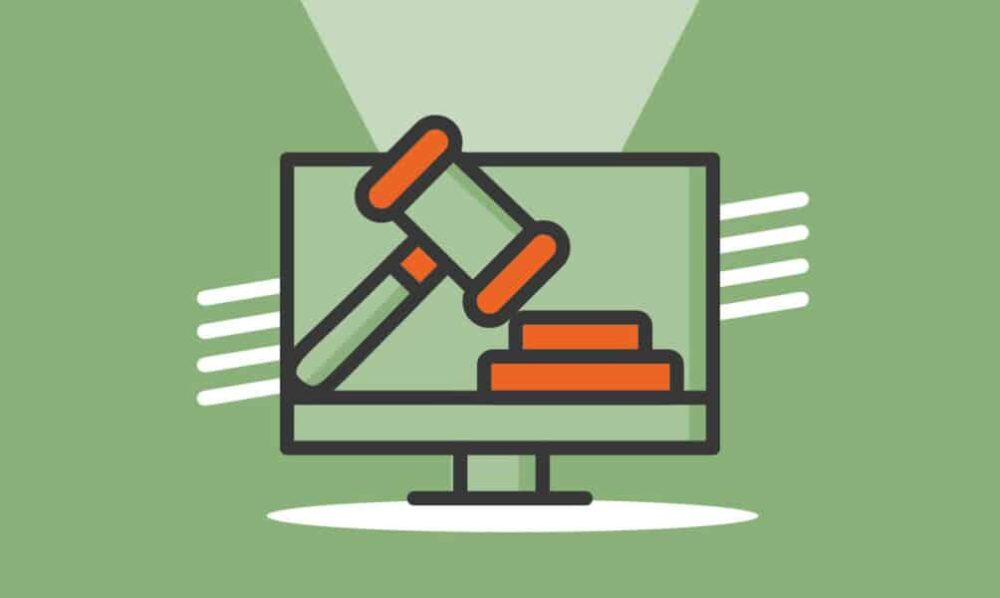The convenience and accessibility of online auctions have revolutionized the way we buy and sell goods. However, with this convenience comes the unfortunate rise in online auction scams. These scams can leave victims with empty pockets and a sense of betrayal. In this article, we will explore the different types of online auction scams and provide valuable insights on how to spot and avoid them. By arming yourself with knowledge and following a few simple guidelines, you can protect yourself from falling victim to these fraudulent schemes.
Types of Online Auction Scams

Online auction scams come in various forms, but they can generally be categorized into three main types: bidding scams, payment scams, and merchandise scams. Bidding scams involve manipulating the bidding process to artificially inflate prices or prevent legitimate bids from being accepted. Payment scams occur when a seller requests payment through untraceable methods or fails to deliver the promised goods after receiving payment. Merchandise scams involve selling counterfeit or non-existent items, leaving buyers with subpar or non-existent products.
Recognizing Red Flags
When browsing online vintage auctions, it’s crucial to be vigilant for red flags that may indicate a potential scam. One common red flag is suspiciously low prices. If a product is being offered at a price significantly lower than its market value, it’s essential to exercise caution. Additionally, limited seller information can raise suspicions. Reputable sellers typically provide comprehensive details about themselves and their products. If a seller’s profile lacks crucial information or seems hastily put together, it may be a sign of a scam.
Scrutinizing Seller Profiles
Before engaging in any transaction, it’s crucial to thoroughly examine the seller’s profile. Start by checking their ratings and reviews from previous buyers. A high number of positive ratings and satisfied customers is a good indication of a trustworthy seller. Take the time to read through the feedback, paying attention to any recurring issues or complaints. Additionally, consider the seller’s transaction history. If they have a limited history or a high number of canceled transactions, it may be wise to proceed with caution.
Verify Seller’s Credibility

To ensure the credibility of a seller, go beyond the platform’s provided information and research their online presence and reputation. Perform a search engine query using the seller’s username or business name. Look for any negative reviews, forum discussions, or scam alerts related to the seller. If the seller has a website or social media accounts, examine them for consistency and professionalism. A reputable seller will have a robust online presence that aligns with their claims on the auction platform.
Understanding Escrow Services
For high-value transactions, consider using escrow services as a safe payment method. Escrow services act as intermediaries, holding the buyer’s funds until the seller delivers the goods or services as agreed upon. This way, both parties are protected from potential fraud. However, ensure that the escrow service you use is legitimate and reputable. Research the service provider’s background, read reviews from users, and verify their licensing or accreditation. Avoid escrow services recommended by the seller, as they may be in cahoots to deceive unsuspecting buyers.
Importance of Secure Payment Platforms
When conducting online auctions, it’s crucial to use trusted and secure payment platforms. Reputable platforms offer buyer protection mechanisms that safeguard your funds in case of fraud or non-delivery. Look for payment options that allow you to dispute transactions or request refunds if the seller fails to deliver as promised. Popular platforms like PayPal, Stripe, and Amazon Pay often provide buyer protections, giving you peace of mind when making online purchases. Avoid using less secure or unverified payment methods, as they offer little to no recourse if something goes wrong.
Beware of Counterfeit Merchandise

Source: online-tech-tips.com
Counterfeit merchandise
is an unfortunate reality in the online auction world. To protect yourself from falling victim to counterfeit fraud, it’s essential to familiarize yourself with the characteristics of genuine products. Research the brand and model you’re interested in, paying attention to details such as logos, serial numbers, and packaging. Compare product images and descriptions provided by the seller with official sources or reputable retailers. If something seems off or too good to be true, it’s better to err on the side of caution and walk away from the deal.
Use Secure and Traceable Shipping Methods
To mitigate the risk of non-delivery scams, always opt for secure and traceable shipping methods. Insist on using reputable shipping companies that provide tracking numbers and insurance for valuable items. This way, you can monitor the progress of your package and ensure it reaches its destination safely. Avoid sellers who insist on using unconventional shipping methods or refuse to provide tracking information. It’s also wise to require a signature upon delivery, reducing the chances of theft or fraudulent claims from the seller.
Trust Your Instincts
One of the most powerful tools in avoiding online auction fraud is your intuition. If something feels off or too good to be true, trust your instincts. Scammers often rely on exploiting our desires for bargains or exclusive items. If a deal seems too perfect or a seller’s behavior raises suspicions, take a step back and reevaluate the situation. It’s better to miss out on a potential opportunity than to become a victim of fraud. By listening to your gut feelings, you can protect yourself from falling into the trap of online auction scams.
Reporting Scams

In the unfortunate event that you encounter an online auction scam, it’s essential to take immediate action. Report the scam to the auction platform or website where it occurred, providing detailed information and evidence of the fraudulent activity. Additionally, report the scam to your local authorities or the appropriate law enforcement agency. By reporting them, you not only protect yourself but also help prevent others from falling victim to the same fraudsters. Remember, your actions can make a difference in combating online auction scams and keeping the online marketplace safer for everyone.
Conclusion
In conclusion, online auction scams pose a significant threat in today’s digital age. However, armed with knowledge and awareness, you can navigate the online marketplace with confidence. By recognizing red flags, scrutinizing seller profiles, using secure payment platforms, and trusting your instincts, you can spot and avoid online auction scams. Remember, the power to protect yourself lies in your hands. Stay vigilant, stay informed, and stay safe in your online auction endeavors.












